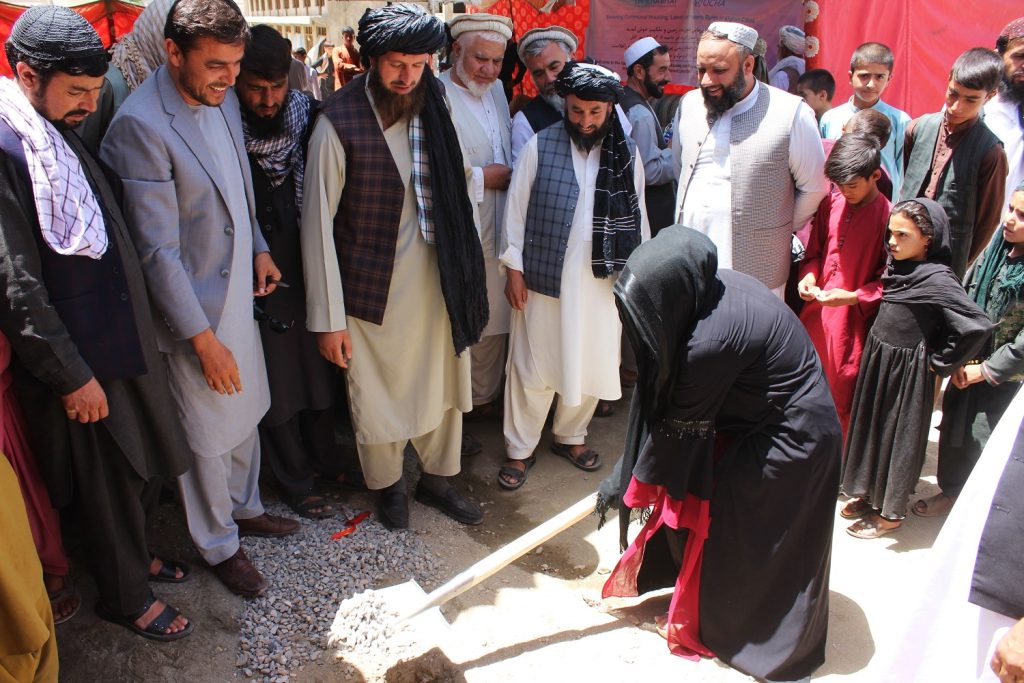Policy on Upgrading of Informal Settlements in Afghanistan
The Challenge of Informal Settlements in Afghanistan
Informal settlements are a pervasive and complex issue in Afghanistan, as a significant proportion of the urban population currently resides in property that has not been formally registered or falls outside the formally planned parts of urban areas. This situation is particularly concerning given the unprecedented urban growth the country is experiencing, which poses a significant challenge to the authorities mandated to guide and manage urban development. The lack of formal recognition of settlements by these authorities has resulted in a significant disconnect between the ‘formal city’ and the reality on the ground. Consequently, despite housing a substantial and growing proportion of urban inhabitants, settlements do not receive adequate development attention in the form of orderly upgrading or meaningful interventions aimed at improving living conditions.

Understanding Informal Settlements
Definition and Characteristics
Informal settlements are residential areas where a group of residential units are developed on lands without legal ownership or is developed illegally. These settlements are typically characterized by high tenure insecurity, lack of proper infrastructure and services, precarious security and safety, including exposure to environmental and health hazards, and socio-economic marginalization. They often lack basic services such as running water, electricity, sewerage, roads, connection to school systems, healthcare facilities, and institutional presence. Settlements can take various forms, including slums, shanty towns, squats, and pavement dwellings.
Drivers of Informal Settlements
The proliferation of informal settlements is driven by several factors. One of the main drivers is the shortage of affordable housing options, particularly in rapidly urbanizing areas. Persistent conflict and insecurity in settlements can also weaken the institutions that would record and formalize housing transactions. Additionally, the race to become a “global city” often leads to radical physical interventions in the fabric of the city, displacing low-profit firms and households. In Afghanistan, these factors are compounded by the ongoing conflict and economic instability, which further exacerbate the housing crisis.
The Impact of Informal Settlements
Social and Economic Implications
Informal settlements have significant social and economic implications for their residents and the broader urban community. Residents of settlements often lack security of tenure or land rights, living under the constant threat of eviction. This insecurity can lead to social instability and a lack of investment in the community. Furthermore, the lack of basic services and infrastructure in these settlements can result in poor health outcomes, limited access to education, and reduced economic opportunities. settlements according to a landmark report by the International Institute for Environmental and Development (IIED), improving housing in settlements on a global scale could have transformative economic and human development impacts.
Environmental Risks
Informal settlements are often located in high-risk areas, such as floodplains, steep slopes, and near hazardous waste sites. This makes their residents particularly vulnerable to environmental disasters and health hazards. For example, in Freetown, Sierra Leone, up to 60% of the population lives in settlements constructed on precarious land prone to flooding, fires, and landslides. settlements the lack of proper planning and infrastructure in these areas can exacerbate the impact of natural disasters and environmental degradation.
Addressing the Challenge of Informal Settlements
Policy and Planning Interventions
Addressing the challenge of informal settlements requires a multifaceted approach that includes policy and planning interventions. One potential solution is the formalization and upgrading of existing settlements. This can involve providing residents with secure tenure, improving infrastructure and services, and integrating these settlements into the formal urban fabric. Another approach is to prevent the formation of new settlements by increasing the supply of affordable housing and improving urban planning and governance.
Community Participation and Empowerment
Informal settlements for community participation and empowerment are crucial components of any strategy to address settlements. Residents of settlements often have valuable knowledge and experience that can inform the planning and implementation of interventions. Engaging with communities can help to ensure that interventions are culturally appropriate, sustainable, and effective. Additionally, empowering residents can help to build social cohesion and reduce the risk of conflict.
International Support and Collaboration
Addressing the challenge of informal settlements is not only a national but also a global issue. International organizations, such as the United Nations, can play a crucial role in supporting countries to develop and implement strategies to address settlements. In settlements, this can include providing technical assistance, financial support, and facilitating knowledge sharing and collaboration between countries. For example, the World Economic Forum has highlighted the importance of global action to improve housing in settlements.
Conclusion
Informal settlements are a significant challenge for urban development in Afghanistan and many other countries around the world. Addressing this challenge requires a comprehensive approach that includes policy and planning interventions, community participation and empowerment, and international support and collaboration. By taking action to improve the living conditions in settlements, we can not only enhance the quality of life for millions of people but also contribute to sustainable urban development and economic growth.
